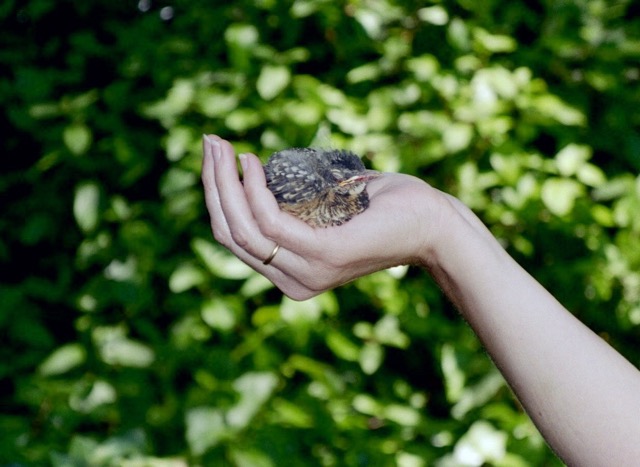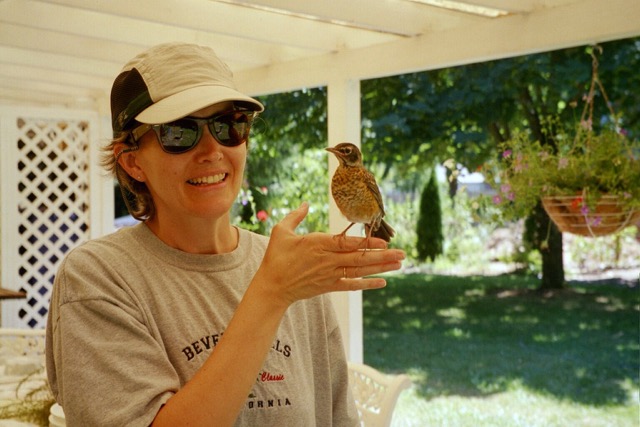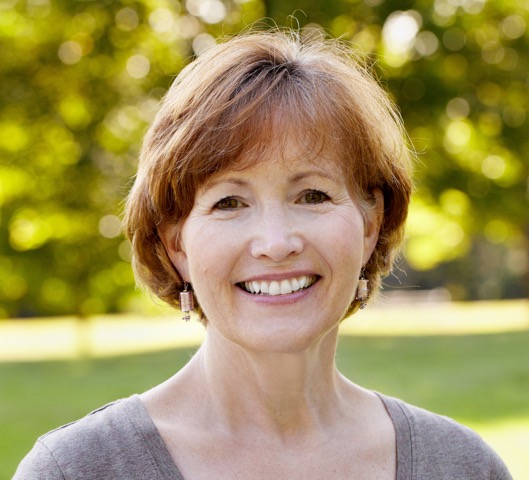A conversation with Tavia Gilbert and Kate Rudd, the narrators of
I’ll Be Seeing You, by Suzanne Hayes and Loretta Nyhan
Ideal: Tavia and Kate thank you for joining us today! We were so happy to have the two of you narrate this special audiobook. I loved how AudioFile Magazine described your narration:
“The power of the written word resonates in Tavia Gilbert’s and Kate Rudd’s compelling portrayals of war wives. Rudd instills a youthful optimism that balances well with the personality of her pen pal, Rita. Gilbert lends a sensible voice to a woman who waits for both her husband and her son to come home. Both narrators do a beautiful job of saturating the letters with the sting of heartache, the shock of relief, and overwhelming love and support.”
Ideal: I’ll Be Seeing You was written as a series of letters the two main characters, Glory (played by Kate) and Rita (played by Tavia) wrote to each other while they waited for their loved ones to return home from fighting in World War II. Were you aware of each other’s narration before recording? Did you adjust at all to each other’s styles, or just attend to your own characters?
 Tavia: I loved reading Kate’s letters – Glory’s letters and because I know and adore Kate’s voice and interpretation of material, I could hear how she might deliver the words. But really, the writing was primary. This book is powerfully evocative, so my job felt easy, as it always does when I’m narrating well-crafted material. I just sit back and let the words do their work. I don’t have to or want to push anything on the read. It’s always a delight to voice great stories that are character rich and beautifully paced, and this was a particular delight
Tavia: I loved reading Kate’s letters – Glory’s letters and because I know and adore Kate’s voice and interpretation of material, I could hear how she might deliver the words. But really, the writing was primary. This book is powerfully evocative, so my job felt easy, as it always does when I’m narrating well-crafted material. I just sit back and let the words do their work. I don’t have to or want to push anything on the read. It’s always a delight to voice great stories that are character rich and beautifully paced, and this was a particular delight
Kate: I really got pulled into the script right away, and I felt the characters were so well developed that I could almost hear them. I was familiar with Tavia’s vocal tone, and I knew she would be able to bring Rita to life very effectively. I tried to rely on the spirit I could see in Glory her effervescence and developing grit.
Ideal: When I listened to this book, it felt so real to me. You perfectly embodied these characters. Did you find points of connection with them yourselves, or did you have specific people on whom you based your characterizations?
Tavia: I absolutely felt that Rita was my character to play. She’s still a young woman -early 40’s but she’s been through so many trials and losses, and she has the gravitas, wisdom, and grace of an older woman. I loved the development of her character, learning about her surprise passion for a lover and her deep and mature, vibrant passion for her beloved husband. Rita is complex and so beautifully realized. I felt and still feel a deep alignment with her, and itI’m taking a long time to answer because the feeling is deep and hard to describe. I was grateful to play this character. It resonated. That’s a simple thing to say, but I can’t articulate it further.
 Kate: I have always heard stories from my grandmother about a dear and unlikely friendship between her and a neighbor everyone called Marilyn, maybe because that was her actual name and maybe because she brought Marilyn Monroe-like beauty and energy into the room when she arrived. My grandma’s friend was larger than life, quite guileless, truly curious and animated and a bit spoiled, but a strong woman. I thought of her as I connected with Glory, and of my own grandma, who raised herself from adolescence during the WWII era.
Kate: I have always heard stories from my grandmother about a dear and unlikely friendship between her and a neighbor everyone called Marilyn, maybe because that was her actual name and maybe because she brought Marilyn Monroe-like beauty and energy into the room when she arrived. My grandma’s friend was larger than life, quite guileless, truly curious and animated and a bit spoiled, but a strong woman. I thought of her as I connected with Glory, and of my own grandma, who raised herself from adolescence during the WWII era.
Ideal: Wow, what great perspectives it definitely felt like there were many layers that went into your portrayals of these characters, and I love hearing the backstory. Did you have other points of connection with the history and the story of this book?
Tavia: My grandfather was from Iowa, and that part of the American landscape and consciousness is very familiar to me part of my own family history and mythology. My grandfather was in the service in WWII (stationed stateside), as well, so this story felt less like historical fiction than a part of my own history, in a way.
Kate: Absolutely. The title, I’ll Be Seeing You, immediately meant something special to me. During WWII my grandfather was serving on a Navy ship, and the deployment had been a long one. Morale was occasionally boosted by air drop deliveries of whatever was ‘new’ on the mainland. One day on their return journey, rations were low and moods were too. The ship received an air drop which contained a new album, subsequently played over the ship’s speakers. I’ll Be Seeing You. My grandfather and every other soldier present wept. I was able to sing that song many years later for my grandmother in a cabaret performance.
Ideal: Thank you for sharing these pieces of your history. It’s wonderful how a song or a story can resonate throughout generations and affect people many years later.
Tavia, I know you’re a writer. Do you find that narrating audiobooks has given you new insight into how to shape your own stories? For both of you – has narrating affected how you approach other artistic pursuits?
Tavia: Narrating great books has certainly made me a better writer. I can’t help but learn craft when I can luxuriate in language play all day!
Kate: I have never considered myself a writer, but I do have an interest in learning how to tell great stories in written form. Im fascinated by the patience required by authors to stay with a project so long. I do think that stepping into so many wonderful (and occasionally wacky) stories over the years has been an interesting creative excercise. I love music, singing and songwriting, and I hope to write something long-form in the future.
Ideal: I can’t wait to read/hear your writing! I know so many interviews ask about how you got into audiobooks, but I’m wondering if you can share how being a full-time narrator has changed your career trajectory and affected your lives?
Tavia: One unexpected thing is the community of friends and colleagues that this industry has offered me. I never anticipated developing close relationships with talented, loving, warm, kind, generous people across the country, but that has been my experience. One mixed blessing is that my audiobook career has kept me too busy to have the wonderful theater and commercial acting work that I used to. I miss performing live so much, and though I enjoy my lifestyle working from home as a narrator, the connections I had with other artists on set and stage were really dear and enriched my work as an actor. I’ve become so much more skilled with text — really so much better an actor because of my intensive work as a narrator, so I’m eager to get back on stage and play even better than before!
Kate: I really never expected to be able to do this full-time. I started out as an on-screen actress working in independent films around the Midwest and especially West Michigan, where I am raising my children. I auditioned for Brilliance Audio and got my start there, for which I am eternally grateful! Being able to do this full-time has meant that I have flexibility in my schedule to allow lots of time spent with my children. It has meant I can meet their needs and pay our bills and help them be able to pursue the things they love. Sometimes it has also meant an empty calendar, scrambling to find a gig, and long hours when a convergence of many projects occurs. Overall, the work makes me so incredibly happy and I cant imagine settling for anything less than this life of storytelling. Finding audiobooks as a vocation has been one of the happiest surprises of my life.
Ideal: When I first heard your recording of I’ll Be Seeing You, I cried. I thought: this is what I set out to do to bring something wonderful to the world. Everyone who was involved in making it was affected by the story and your performance. But the proofer took it a step further when she said that this is an important story that should be taught in the schools. It is a different take on the usual WWII story because it takes place on the home front, and it deals with community, tolerance, and the effect of war on those who are not fighting in it but still intimately involved. I’m wondering if there are any themes or elements of the story that you would like to discuss?
Tavia: What was most powerful to me about this story, and most unusual, was the autonomy and independence these two women enjoyed and struggled with. The book is a deeply feminist story that affirms the rich lives of women “even” after they become mothers and wives, “even” over 40, “even” as they wait for answers about their futures in relationships with the men they cherish. I loved the feminist relationship between Rita and Glory — their committed support of each other, their honesty and direct talk with each other, their affirmation of each other as smart, thoughtful, complicated, sexual, conflicted, angry, grateful, yearning, generous, fully realized human beings. This wonderful, contemporary novel is a much-needed antidote to a saturated marketplace of easy stories that so often perpetuate the myth that women are dependent on men for their identity and direction.
Kate: Yes! I love the idea of this story being used in classrooms. One thing that is beautifully illustrated in the book is the sense of isolation many women experienced during WWII as they remained home, carrying the responsibilities to keep their families and entire communities afloat during a terribly uncertain time. The book shows how each woman had to really square her shoulders and get to work in often unfamiliar areas of necessity. The cooperation and support fostered between Rita and Glory, even across vast distance, shows a vivid picture of what it must have felt like to be a woman then.
Ideal: We did an interview with the authors where they described being two women in two different cities sharing the experience of writing a story together – a story about two women in different places sharing an experience from afar. And the two of you were also recording this from different cities. I know that so much of our work these days is paired and multicast. Do you find that freeing, or limiting? How does it affect the way you work?
Tavia: I think it’s a great opportunity! So much of the work of an audiobook narrator is solitary, and to have a chance to collaborate with someone especially someone as expert and wonderful as Kate was a pleasure. No limitation in that at all! I think it makes my work better, to know that I have a responsibility to rise to the level set by another performer.
Kate: I read that interview and was fascinated by their writing process! I think there seems to be an element of synchronicity around every corner of this project. As far as working in multi-voice format its great. Of course it can pose a challenge in terms of consistency, but we narrators love a good challenge! With a book like I’ll Be Seeing You, the flow of the story was ideal for two voices. Im so happy it was Tavia on the other end of Glory’s letters. Something really cool happens when multiple performers are allowed to step into the same book, in my opinion.
Ideal: I really enjoy multicast too, especially with accomplished narrators like both of you! Is there anything else you’d like to share with listeners about either this book, or audiobooks in general?
Kate: I would love for listeners to know how deeply we care about the stories we are privileged to tell as narrators. Id like to see audiobooks continue to be used more and more as a learning tool for childhood literacy, and I am so grateful to be able to help even one person fall in love with books. Along those lines, I need to say how much I appreciate and believe in what Ideal Audiobooks is doing in the industry! Amy, I love it that you started as a listener, became a highly acclaimed narrator, then decided to start your own company from a place of positivity! Those of us who have had a chance to voice stories cast by Ideal have been lucky to come along for the ride on your adventure. Thank you.
Tavia: I mean, what else is there to say other than that? That’s perfect, Kate.
Ideal: Thank you! It means so much to me to know that you are as invested in this work as I am. I imagined this company as a place where a narrator could get an Ideal narration job and say automatically, “Oh, good, I’m going to have a wonderful week!” and that the listeners would get an Ideal book and feel the same way. I’m so happy to be able to work with you both!
Tavia: That’s a great mission, and one that I trust, and to which I am so honored to contribute. Thanks for allowing me to be a part of it!
Ideal: Thank you so much for taking the time out of your busy narration schedules to talk with us!
A conversation with Robin Eller, narrator of Our Auntie Rosa: The Family of Rosa Parks Remembers Her Life and Lessons By Sheila McCauley Keyes with Eddie B. Allen, Jr.

Ideal: We’re so happy to have you here to discuss Our Auntie Rosa.
Robin: Thank you for having me!
Ideal: We loved your narration of this family memoir from the nieces and nephews of Rosa Parks. One of the things I appreciated was how beautifully you handled the fact that in each section you told a story by a group of anywhere from 2-6 people but it was written as if the narrator were one person. How did you approach that unique format?
 Robin: That’s a great question. After careful thought and a discussion with Ideal… it would have been impossible to be six people. I felt it was best to just tell the story from my heart. All of these segments were heartfelt and therefore it made it easier for me.
Robin: That’s a great question. After careful thought and a discussion with Ideal… it would have been impossible to be six people. I felt it was best to just tell the story from my heart. All of these segments were heartfelt and therefore it made it easier for me.
Ideal: That’s one of the reasons we chose you. You have a wonderful intimate quality to your narration, and this book was full of very personal stories about what Rosa Parks meant to her family. Did you feel that this book revealed more about her than you had known from history?
Robin: Absolutely! Unfortunately, we are only given a limited amount of information in school regarding African-American history. With that said, it’s no surprise that most people know very little about Rosa Parks; other than that historic day. One would have to do more research to find out more details. What is written in this book would only be known by her family members. In fact, it was put to the test, when I read a portion for a group of well-read Seniors at a Black History Month celebration.
Ideal: What was their response?
Robin: I read an excerpt about how the bus driver had given Rosa Parks difficulty prior to her taking a stance on December 1st, 1955. They had no idea that Rosa would pay her bus fare, walk back outside to the back of the bus as required during that time and the busy driver would sometimes pull away without her. They were stunned. I continued to read the details of what happened next and how Rosa Parks mentioned how kind the police were to her at the station. She said, “They even gave me some water.” Of course the entire audience said, “What??” After I read the excerpt, I asked for a show of hands of who was hearing this part of the story for the first time. Each woman in the room raised her hand. I was told today by one of the Ebony Ladies Of Distinction that the ladies are still talking about the reading.
Ideal: When I first read this book, I thought that even though it was written as an adult memoir, it would be good for both middle grade and high school children to read, since it did such a great job of bringing history to life. It fleshed out the story, and enhanced our understanding of Rosa Parks as a person, and her longtime support of the civil rights movement. I hadn’t realized that she was active in the civil rights movement both before and after her historic act.
Robin: Rosa Parks worked for the NAACP. She was a longtime member of the Montgomery Chapter. At the time of her arrest, she was secretary of the local chapter. In fact, she was sent to interview another woman who had been arrested before her. In terms of this being a book that would be good for middle school kids, it is important for them to know that she was considered more than an aunt, she was a second mother to her nieces and nephews when they lost their mother. They looked to her for advice and on one occasion she surprised her nephew by being the guest speaker at his middle school.
Ideal: It sounded like she was someone the children looked up to personally, and they respected her place in history. What did you learn about her character?
Robin: She was very humble and a student of life. She was open to new experiences and embraced them. It is usually said that as people age they are stuck in their ways. This woman was the opposite. Her favorite dish was calf’s brains and scrambled eggs; however later in life, she became more health conscious, shopped at co-ops and shared ideas about nutrition with her niece Shirley. Rosa Parks took up yoga in her senior years and even walked around her home in yoga pants. I think she’s pretty darn cool!
Ideal: That must have especially resonated with you because of your background in dance! Can you tell the listeners something about your background before you became a narrator?
Robin: I have always been a performer. I’m an actor. I was a professional dancer and I even sing. They say you’re supposed to be a triple threat and I trained as much as I could. I was a dance education major in college. I was teaching in after school programs and choreographing for high schools and got a break to perform in Japan. It was hard to leave my students; however they understood and I never looked back. I lived my rock star life. I traveled the world as a dancer with the legendary James Brown. I met so many interesting people. One of the highlights of that tour was meeting Coretta Scott King in Montgomery Alabama. Talk about life coming full circle with narrating Auntie Rosa! I booked commercials and got some TV gigs too. One of my most memorable experiences as a performer was doing the musical Ragtime. It was such a special show! The music, the choreography, the cast! I’m so blessed to have been a part of this beautiful production. I shared the stage with some talented people! What an honor! So many lifetime friendships began in that show. I used to travel to Italy often and had a number of singing opportunities there as well. The idea of doing audiobooks was presented to me a long time ago; however, I was on a different journey. I believe things happen when they are supposed to or one keeps walking into the same wall until one figures out another way to either go around it or break it down. LOL! Audiobooks feels as much as home for me as the stage. Within this community, I have formed lifetime friendships as well.
Ideal: In addition to Our Auntie Rosa, you have narrated other memoirs. Do the books you narrate affect you personally? Have you gained insight or changed because of a book you’ve narrated?
Robin: I probably place a bit of pressure on myself to do them justice. It’s because I care so much. It’s a huge responsibility to tell someone’s truth. Reading someone’s trials and tribulations in life can be inspiring and sometimes painful. Because I have been fortunate to narrate memoirs that have been written by celebrities who are deemed icons, I have gained a lot of insight into their lives. It takes great courage to share intimate parts of your life with the world. I do my best to handle their stories with care. If I have changed in any way, I have become more sensitive to what is written and look at the world or a particular person a little differently. I learn something about someone that I didn’t know before, which is always great.
Ideal: I know you recently had a chance to take part in an organization that is bringing another little-known piece of history to life. Can you tell us about it?
Robin: I would love to. Did you know that Los Angeles has an African-American Firefighter Museum? This museum is an important piece of the history of Los Angeles. There was a time in Los Angeles when African-American firemen were only allowed to work at two stations and that’s just a small part of the story. Even with integration there was great resistance from their co-workers and society. Hard to believe, I know. This particular station is so far the only freestanding African-American firefighter museum in the United States. They are going to reinvigorate how they share the history of these firemen, which will include an audio tour. I have the privilege of being the voice that shares these indelible memories.
Ideal: That sounds fantastic! I love that you are helping bring a wealth of rich history to the listening audience. Thank you so much for joining us, and for your narration of Our Auntie Rosa!
Robin: Thank you for having me. It was an honor to share this important part of history.



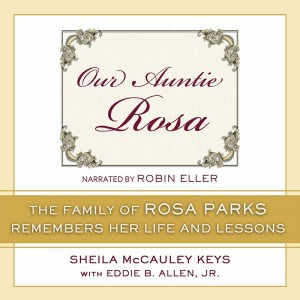
 Robin: That’s a great question. After careful thought and a discussion with Ideal… it would have been impossible to be six people. I felt it was best to just tell the story from my heart. All of these segments were heartfelt and therefore it made it easier for me.
Robin: That’s a great question. After careful thought and a discussion with Ideal… it would have been impossible to be six people. I felt it was best to just tell the story from my heart. All of these segments were heartfelt and therefore it made it easier for me.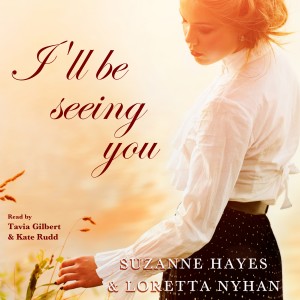
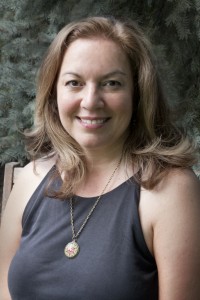 Loretta: Suzy and I met online through some writer friends’ blogs. We started commenting on each other’s blog posts, which led to sharing and critiquing each other’s work. When we both had other projects on submission with publishers, we were driving ourselves crazy with worry and stress. Suzy said, “Let’s write something just for ourselves, for fun” and she sent me that first letter you see in the book. She sent it in character, with no explanation. I was blown away. About five minutes after she sent it, Rita showed up, a fully formed character. I know that sounds a little woo-woo, but sometimes magic just happens. I wrote back to her immediately (that’s the second letter you see in the book—the first two letters are pretty much unedited).
Loretta: Suzy and I met online through some writer friends’ blogs. We started commenting on each other’s blog posts, which led to sharing and critiquing each other’s work. When we both had other projects on submission with publishers, we were driving ourselves crazy with worry and stress. Suzy said, “Let’s write something just for ourselves, for fun” and she sent me that first letter you see in the book. She sent it in character, with no explanation. I was blown away. About five minutes after she sent it, Rita showed up, a fully formed character. I know that sounds a little woo-woo, but sometimes magic just happens. I wrote back to her immediately (that’s the second letter you see in the book—the first two letters are pretty much unedited).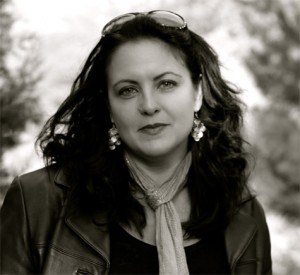

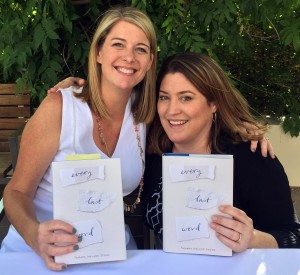
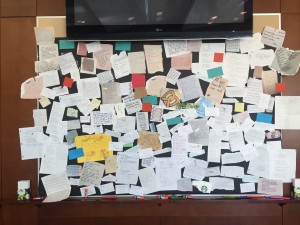
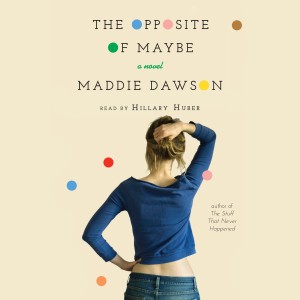

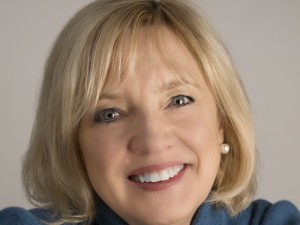
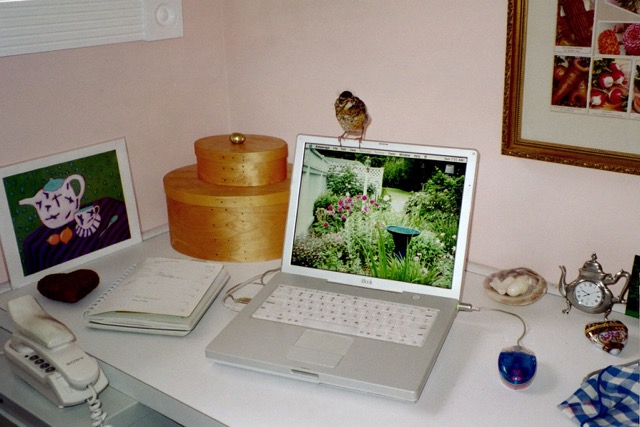
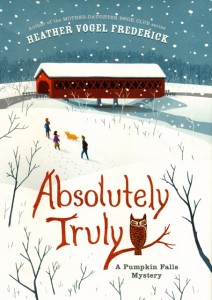 You have new books coming out next year in both the Pumpkin Falls and Mother-Daughter Book Club series. What can listeners look forward to?
You have new books coming out next year in both the Pumpkin Falls and Mother-Daughter Book Club series. What can listeners look forward to? Your books are very inclusive of classic literature. Truly and her friends interpret Shakespeare quotes to help solve a mystery; the Mother-Daughter Book Club reads books ranging from Anne of Green Gables to Jane Eyre. Have you heard from readers that your books helped them become interested in and understand these books from another time?
Your books are very inclusive of classic literature. Truly and her friends interpret Shakespeare quotes to help solve a mystery; the Mother-Daughter Book Club reads books ranging from Anne of Green Gables to Jane Eyre. Have you heard from readers that your books helped them become interested in and understand these books from another time?